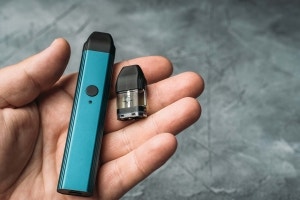FSA Soon to Authorise CBD Products in the UK
What does this mean and is it important to you?

The CBD scene in the UK is set for a major shake-up. The Food Standards Agency (FSA) recently announced plans to issue full authorisations for CBD products by spring 2025, marking a significant milestone for the industry. But what does this mean for the market and consumers alike?
The Significance of FSA Authorisations
Imagine walking into a shop and knowing that every CBD product on the shelf has met rigorous safety and quality standards. That's the vision the FSA is working towards. By issuing full authorisations, the FSA aims to ensure that only products that meet their stringent criteria can be sold legally in the UK. It's a win-win situation, providing peace of mind for consumers and clarity for businesses.
For CBD enthusiasts, this move promises a more reliable and transparent market. You'll be able to trust that the products you purchase are safe and effective, paving the way for a more enjoyable and worry-free experience.
Understanding the Current Regulatory Landscape
Navigating the existing regulations for CBD products in the UK can feel like walking through a maze. Currently, CBD products linked to novel food applications submitted before 26 May 2022 are allowed for sale, pending full regulatory approval. However, the process has been fraught with delays and challenges.
The main issue has been the quality and relevance of data provided by applicants, which has slowed the validation process. The FSA has had to give applicants multiple chances to improve their dossiers, making the entire procedure more resource-intensive than anticipated.
The FSA's Approach to Authorisation
The FSA has taken a meticulous approach to evaluating and authorising CBD products. Their focus is on ensuring that every product meets high safety and quality standards. This involves a multi-step process:
1. Initial Validation: Applications are first reviewed for completeness and relevance.
2. Risk Assessment: Once validated, applications move to the risk assessment phase, where they are scrutinised for potential risks to consumers.
3. Risk Management: Applications then enter the risk management phase, taking into account other legitimate factors that could impact consumer safety.
4. Ministerial Approval: Finally, applications are sent for ministerial approval before receiving full authorisation for sale.
Emily Miles, CEO of the FSA, has emphasised that the thoroughness of this process is essential for ensuring consumer safety, despite the resource demands it creates.
Impact on Product Availability and Variety
One of the most exciting aspects of these impending authorisations is the potential boost in the availability and variety of CBD products. With full authorisation, we can expect a broader range of high-quality CBD products to hit the market. From oils and tinctures to edibles and topicals, the possibilities are endless.
This could also spark innovation within the industry, encouraging brands to develop new and unique products that cater to the diverse needs of CBD enthusiasts.
Addressing Industry Concerns
While the FSA's plans are promising, they haven't been without criticism. The Association for the Cannabinoid Industry (ACI) has raised concerns about ongoing delays and the FSA's communication practices. Steve Moore, CEO of ACI, believes that the FSA has repeatedly failed to comply with regulatory best practices, causing uncertainty and frustration within the industry.
This uncertainty has had a tangible impact on CBD businesses, with some struggling to raise capital or exit the market entirely. Investors have taken note, further compounding the challenges faced by the sector.
The Role of THC Content
One critical hurdle to the FSA's 2025 deadline is the need for an amendment to the Misuse of Drugs Act to account for trace levels of THC in CBD products. Without this legislative change, the full authorisation process could face significant delays.
The FSA has acknowledged the importance of this amendment and is hopeful that the Home Office will take the necessary steps. However, the lack of a firm timeline for these legislative reforms remains a cause for concern.
Currently, the guidelines suggest that for CBD products to be legal they must contain no more than 0.2% of THC.
The Future of CBD in the UK
The FSA's commitment to achieving full authorisations by spring 2025 represents a pivotal moment for the CBD industry in the UK. This regulatory milestone signifies a significant step forward in ensuring the sector's growth and sustainability. While challenges remain, such as navigating complex regulatory requirements and ensuring compliance, the potential benefits are substantial for all stakeholders involved.
For consumers, this commitment translates to safer, higher-quality products that meet rigorous safety standards and provide greater transparency regarding their contents and origins.
It offers much-needed clarity and a level playing field for businesses, enabling them to innovate and compete more effectively in a rapidly evolving market. This development promises to bolster consumer trust and encourage responsible business practices, ultimately driving the industry's long-term success.
Conclusion
The road to full CBD authorisations in the UK has been long and winding, but the FSA's commitment to spring 2025 marks a significant step forward. For CBD enthusiasts, this promises a safer, more transparent market with a wider variety of high-quality products.
Stay tuned for further updates and consider signing up for our newsletter to keep abreast of the latest news and developments in the CBD industry.











